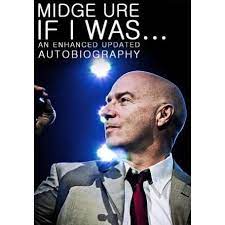10 ERRORES QUE COMETEN LOS NATIVOS DEL INGLÉS
#5 El subjuntivo en inglés ¿Existe?
Identifica el mismo error repetido en las siguientes frases:
If he was rich, he wouldn’t work here.
I wish I was back home again
It’s vital that she is warned about the dangers.
The judge recommended that he is given a life sentence.
¿Los has identificado? En realidad ¡no hay errores! Pero en cada caso se puede emplear un subjuntivo.
Ejemplos con subjuntivo:
If he were rich, he wouldn’t work here.
I wish I were back home again
It’s vital that she be warned about the dangers.
The judge recommended that he be given a life sentence.
Análisis
Puedes estudiar inglés toda la vida y no recibir nunca una clase sobre los subjuntivos, aunque sí, existen. Dos buenas noticias.
- El uso no es obligatorio en las situaciones informales de la vida.
- No hay que aprender un tiempo verbal nuevo con todas sus conjugaciones como en las lenguas latinas.
¿Qué es el subjuntivo en inglés?
Formas de los verbos
Los verbos ingleses son por sí mismos, muy sencillos, y para el subjuntivo se emplea el infinitivo en el presente
I be, you be, he be; I were, you were, she were; I go, you go, he go
El pasado se usa para eventos hipotéticos. Solo se nota la diferencia en el verbo To be: ‘I/she was’ se convierte en ‘were’
Igual que en castellano, el subjuntivo es <<un modo verbal que expresa una acción, un proceso o un estado como hipotético, dudoso, posible o deseado y suele aparecer en oraciones subordinadas. >>
- Pero en el inglés solo se usa en determinados casos. Los más típicos son la “second conditional” y “wish/if only” para situaciones hipotéticas.
If I were rich (en vez de If I was…), I’d buy a bigger house. (Si fuera rico, compraría una casa más grande).
He wishes he were (en vez he was) the boss of his own company. (Desearía ser jefe de su propia empresa).
If only I had shares in Apple. (Ojalá tuviera acciones de Apple).
I’d rather you didn’t open the window. Preferiría que no abrieras la ventana.
- Otro caso es cuando dices que hay que hacer algo con verbos como
Order, command, insist, demand, request
- O con frases con adjetivos y verbos como:
It’s important that; it’s vital that, we recommend that
They insist that he accept the offer. (Insisten en que acepte la oferta).
It’s important that a meeting be held tomorrow morning. (Es importante que se celebre la reunión mañana).
Sin embargo, solo se usa en el habla formal y los documentos formales, y es más habitual en los EEUU que en Gran Bretaña.
Se puede usar ‘should’ : “It’s important that the meeting should be held tomorrow.” o simplemente,” It’s important to hold the meeting tomorrow. “
Frases hechas
Hay frases hechas en las cuales siempre se usa el subjuntivo. Por ejemplo:
If I were you,… (Yo que tú…); If the truth be told ( a decir verdad)
En el resto de los casos, en la vida cotidiana la gente evita el subjuntivo ya que suena demasiado formal, pedante, o quizás ‘pijo’. Por tanto, podríamos decir <<Dime si utilizas el subjuntivo en inglés, y ¡te diré como eres!>>
Tanto si eres hablante nativo o no del inglés, ¿lo utilizas? ¡Contáctanos para saber más!
